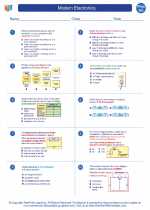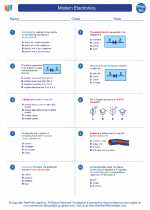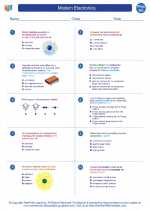Insulators: Explanation and Study Guide
What are Insulators?
An insulator, in the context of physics, is a material or substance that does not easily allow the flow of electric current. This means that insulators have high electrical resistance and are used to prevent the flow of electricity. Insulators are essential in many applications, such as electrical wiring, electronics, and power transmission.
Properties of Insulators
Insulators have several key properties that distinguish them from conductors (materials that allow the flow of electric current):
- High Electrical Resistance: Insulators have high resistance to the flow of electric current, which means they impede the movement of charged particles (electrons).
- Low Thermal Conductivity: Insulators are poor conductors of heat, which makes them useful for thermal insulation in various applications.
- Non-Magnetic: Most insulators are non-magnetic and do not exhibit magnetic properties.
- Dielectric Properties: Insulators are often used as dielectric materials in capacitors, where they can store electrical energy in an electric field.
Examples of Insulators
Common examples of insulators include:
Applications of Insulators
Insulators are utilized in various practical applications, including:
- Electrical wiring and cables
- Insulating coatings for electronic components
- High-voltage power lines and electrical insulation
- Thermal insulation in buildings and appliances
- Dielectric materials in capacitors and electronic devices
Study Guide
When studying the topic of insulators, consider focusing on the following areas:
- Understanding the concept of electrical resistance and its relationship to insulating materials.
- Exploring the properties of specific insulating materials and their practical uses.
- Investigating the role of insulators in electrical safety and the prevention of electric shocks.
- Examining the application of insulators in electronics and electrical engineering.
- Understanding the behavior of insulators in the presence of electric fields and their use as dielectric materials.
By mastering the properties and applications of insulators, you will gain a solid understanding of their significance in various fields of science and engineering.
.◂Physics Worksheets and Study Guides High School. Modern Electronics

 Worksheet/Answer key
Worksheet/Answer key
 Worksheet/Answer key
Worksheet/Answer key
